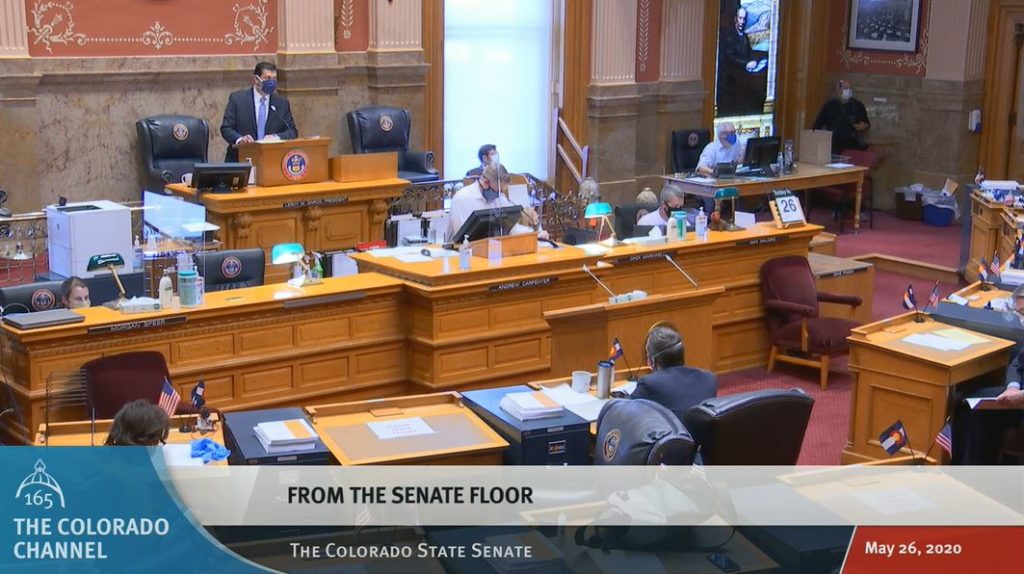By Jeffrey A. Roberts
CFOIC Executive Director
Two transparency bills died Tuesday during a purge of proposals left over from before the coronavirus pandemic forced a suspension of the 2020 Colorado legislative session.
Meeting for the first time since Mar. 11, the Senate Judiciary Committee voted 4-1 to kill a bipartisan measure that would have required the state’s judicial branch to publish Colorado Supreme Court and Colorado Court of Appeals opinions online in a searchable format and at no cost to the public.
The committee also unanimously disposed of Senate Bill 20-179, which would have had each district attorney’s office collect and report demographic, charging and sentencing data on criminal defendants.

Sen. Pete Lee, the Colorado Springs Democrat who chairs the judiciary panel, blamed the impact of COVID-19. The state Capitol is once again open to the public, but visitors are required to wear masks, undergo temperature checks and respect social-distancing guidelines.
“Simply because of the exigencies of the pandemic and our inability to have full-blown hearings and people come in and testify one way or another, we’ve gone through a list of some 18 or 20 bills today and dispatched them, not as a commentary on the merits of the bills, but as a process because of the situation we’re in,” Lee said.
Because the virus has devastated government budgets, bills that carry a price tag are now especially vulnerable. The judicial opinions measure, House Bill 20-1130, was expected to cost $97,500 initially and about $5,000 annually thereafter.
The judiciary currently provides free website access to higher-court rulings going back about 20 years. HB 20-1130, which passed the House unanimously on Mar. 9, would have created a comprehensive database of Colorado Supreme Court and Colorado Court of Appeals decisions dating to when Colorado became a state in 1876.
A complete collection is available only via subscription-based services such as LexisNexis, Westlaw and Bloomberg. Google Scholar’s free database dates to 1950, but it is missing many opinions issued between 1982 and 2000.
SB 20-179, the DA data bill. would have cost district attorney’s offices an estimated average of $98,168 to $196,337 in FY 2021-22, according to Legislative Council staff.
It would have required each DA to collect detailed demographic information on every person arrested or cited for a felony or misdemeanor, including age, race, ethnicity, gender, ZIP code, national origin and indigency status. An annual report made available to the public also was to include information on criminal charges, bail and sentencing for each defendant.
Also on Tuesday, at the request of sponsoring Rep. Lisa Cutter, the House Education Committee voted 13-0 to kill House Bill 20-1357, which would have implemented the recommendations of a K-12 media literacy advisory committee. The bill required a $25,358 appropriation to the Colorado Department of Education.
“I will do whatever I can to continue pursuing this and make sure that (media literacy) gets into the standards and that educators have the tools they need to help all of our children be critical thinkers,” said Cutter, a Littleton Democrat. “Not how to think … but to learn how to discern good sources of information.”
Follow the Colorado Freedom of Information Coalition on Twitter @CoFOIC. Like CFOIC’s Facebook page. Do you appreciate the information and resources provided by CFOIC? Please consider making a tax-deductible donation.




